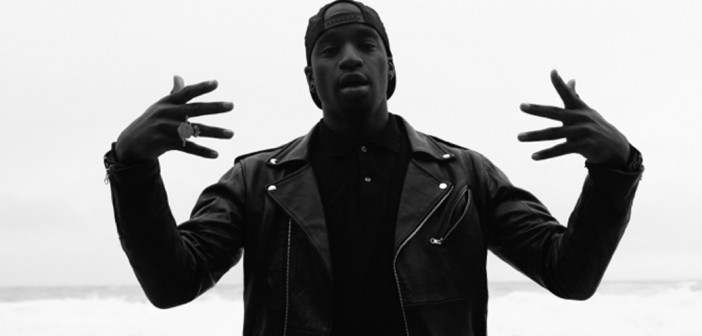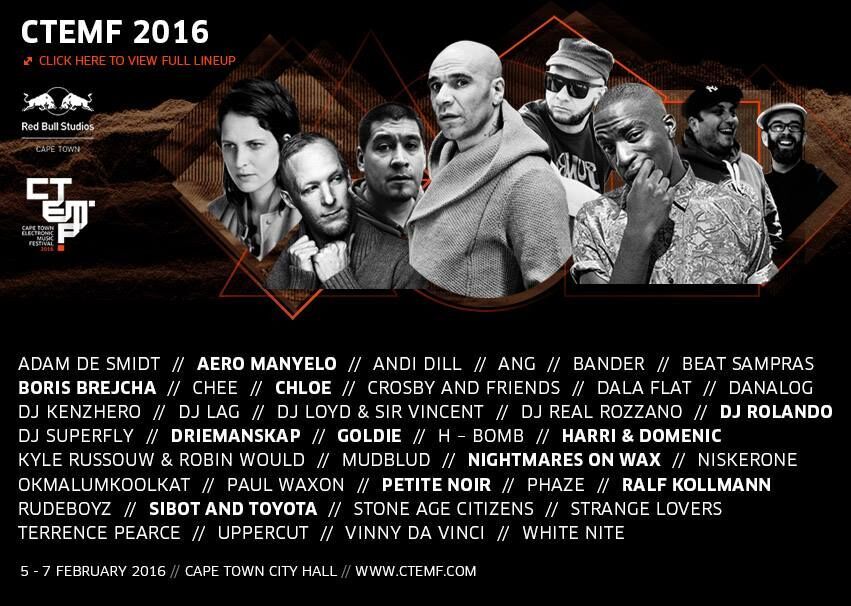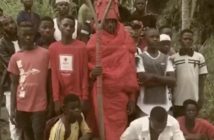It’s an early afternoon at the Red Bull Music Studio in the heart of the Mother City, Cape Town. Culturally a country of its own, Cape Town exudes vitality quite unlike any other communities in South Africa. On one hand a global city with all the amenities of one including a high standard of living, while on the other hand a quintessential representation of South Africa laden with pockets of poverty while the rich get richer. A paradox.
Here, the environment affects its inhabitants, just like the inhabitants shape their environment. The push and pull between these forces has seen Cape Town shaped into what has become the creative hub of South Africa, with Johannesburg playing catch-up. The creative energy, coupled with its visual beauty has seen the city mould some of the most experimental musicians. It’s no surprise that Red Bull chose the city to house the African headquarters of its global network of music studios.
Yannick Ilunga, known as Petite Noir, is at the studio in rehearsal for his first performance in South Africa. The performance comes years after the release of “Till We Ghosts” at a time where the singer/songwriter/producer has made a name for himself globally following the release of the highly anticipated debut album La Vie Est Belle / Life Is Beautiful.
Raised in Cape Town, Ilunga, was born in Brussels to a Congolese father and an Angolan mother. The family moved to Cape Town at the turn of the fall of Apartheid. As quoted by The Guardian, “Nowhere really feels like home,” for the leading proponent of noirwave. Ilunga is a global citizen with an African passport.
“Noirwave started off as being a new wave of music. A new progression of music. A border breaking sounds. It was putting a name to that rhythm of African aesthetic,” Ilunga comments on the term he coined.
“The definition has become so much broader and it’s about being free in your mind and being you,” he adds.
It is through music that Ilunga was able to be himself. He authentically encapsulates all his influences from metal to 808s into a sound which is cohesive, honest and seamlessly hybrid.
Petite Noir’s debut single, “Till We Ghosts” was released in 2012 and shot Ilunga towards global blogosphere prominence with features on Indie Shuffle, Pitchfork and most notably, The Guardian. The success of the single saw Ilunga receive various offers from major labels including Sony, Interscope and Ministry of Sound. True to the art, Ilunga declined the offers because “they wanted [him]to work with a producer where [the label]has so much control over the music”.
“Domino [records]had the best vibes,” Ilunga says on his decision to sign with the UK based independent label. They gave Ilunga freedom and full creative control over his music, releasing The King Of Anxiety EP in January 2015.
The title of the EP could be misconstrued to insinuate someone who is ruled by anxiety, but in an interview with Pitchfork, Ilunga reveals that it is a positive connotation, which reflects someone who has conquered anxiety.
“Music is a tool. We all still go through anxiety and yeah, music is something which sort of helped me reduce it,” Ilunga shares with his soft voice and low-key, almost ambivalent demeanor which, stands in contrast to his physical presence and the conviction in the music he makes.
Ilunga’s debut album, “La Vie Est Belle / Life Is Beautiful” was released in September 2015. Although different from his EP, the album is a natural progression from his EP both sonically and thematically: A celebration of life following the overcoming of its pressures. Ending the search for meaning in life by finding it in ones self.
Petite Noir encapsulates it best on “Freedom” off the album:
‘Freedom comes when you least expect it.’
The album was critically acclaimed worldwide with favourable ratings from NPR, metacritic and discogs. He achieved all of this with apparently no support from traditional local media channels.
“South Africa has given a lot of support,” Ilunga responds when asked about the lack of local support. “The thing is that there are so many different little scenes in South Africa.”
“There is so much division and everything is like a target market… It’s not about this… It’s not [just]about South Africa and there are a lot of places like that,” he adds, with pause and breath, making sure he says the right thing.
It becomes clear that his soft voice and low-key demeanour are not signs of insecurity, but rather an extension of his philosophical and non-partisan nature.
Petite Noir has been largely ignored locally, at least in the traditional or commercial circles, and his first live performance comes this weekend at the Cape Town Electronic Music festival, years after the release of his debut single.
“I’m not nervous at all… I am a bit nervous, but more excited” he says.
Which leads to the question we’re all thinking, why does his debut South African come four years after the release of his debut?
“It’s not really in my control. If I was meant to come earlier or later that’s what would have happened. If I wasn’t meant to be here now, I wouldn’t be here now,” he says free of bias.
Petite Noir’s performance is scheduled at 9pm this Saturday at CTEMF. “Best”, which was featured at number one on #TheFussList is his favourite track to perform live. Purchase your tickets below:






